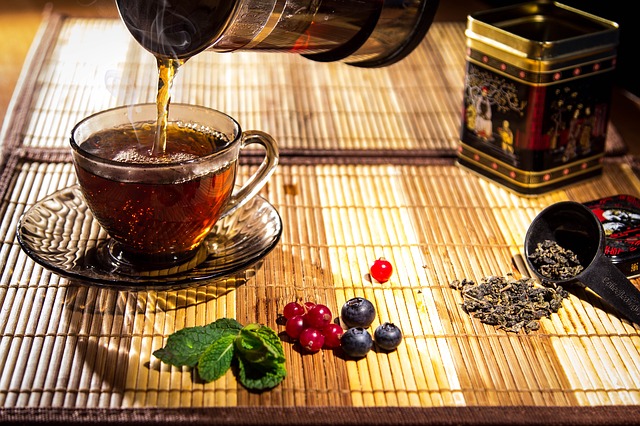 Tea leaves contains a number of phytochemicals that are degraded during the fermentation step to produce black tea. It has been suggested that these degradation products contribute significantly to the aroma and taste of black tea. A number of studies have investigated the way carotenes degrade during black tea manufacture and this chemistry has been reported. For example, in one study tea leaves were shown to contain the carotenes neoxanthin, violaxanthin, lutein, and β‐carotene. The content of these carotenes in the fresh leaf was estimated to be around 0.053 % dry weight, but this decreased to between 0.026 and 0.030 % in fermented leaves. The authors showed evidence that β‐carotene was degraded during fermentation to β‐ionone, and that this process was dependent on the presence of β‐carotene, flavonols and tea enzymes. Evidence also shows that the way the tea is prepared can alter the content of β‐ionine and thus the aroma and taste of the finished product. Macerating the leaves for example increased the content of β‐ionine in the final tea product significantly.
Tea leaves contains a number of phytochemicals that are degraded during the fermentation step to produce black tea. It has been suggested that these degradation products contribute significantly to the aroma and taste of black tea. A number of studies have investigated the way carotenes degrade during black tea manufacture and this chemistry has been reported. For example, in one study tea leaves were shown to contain the carotenes neoxanthin, violaxanthin, lutein, and β‐carotene. The content of these carotenes in the fresh leaf was estimated to be around 0.053 % dry weight, but this decreased to between 0.026 and 0.030 % in fermented leaves. The authors showed evidence that β‐carotene was degraded during fermentation to β‐ionone, and that this process was dependent on the presence of β‐carotene, flavonols and tea enzymes. Evidence also shows that the way the tea is prepared can alter the content of β‐ionine and thus the aroma and taste of the finished product. Macerating the leaves for example increased the content of β‐ionine in the final tea product significantly.

The production of black tea is highly complex and the chemistry of black tea is not fully understood. Each black tea type has a unique aroma and taste that is a reflection of the phytochemical content of the original leaves, as well as the chemical processes they are exposed to during manufacture. In this regard, no two teas are the same, and the chemical composition is difficult to predict. However, the health effects of black tea are well established.
Eat Well, Stay Healthy, Protect Yourself
RdB
